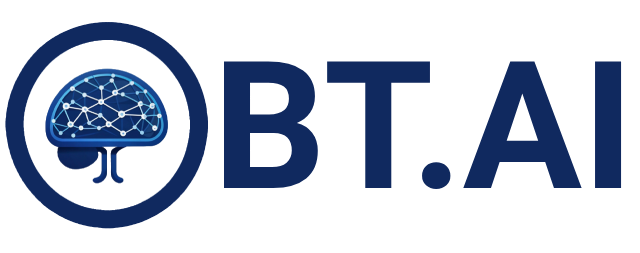How to Choose the Best Legal AI Tools for Your Law Practice
Artificial intelligence, or AI, is revolutionizing the field of law by facilitating task automation, boosting efficiency, and supplying insights. Tools employing AI within the legal sector aid attorneys and legal experts in daily duties, including analyzing documents, drafting contracts, legal research, overseeing cases, and interacting with clients.
Yet, the question arises: How does one select the ideal AI-powered tools tailored to law practice? The numerous choices on offer can make this a complex decision that requires careful consideration of your unique requirements and objectives. In the ensuing article, we aim to navigate you through the maze of selecting the most suitable legal AI instruments tailored to your practice. Our exploration will encompass the subsequent subjects:
- Understanding the advantages of employing AI-driven tools in the law industry.
- Exploring the different categories of AI instruments at your disposal.
- Identifying the essential characteristics to look for in legal AI solutions.
- Highlighting some of the standout legal AI instruments available in 2023.
Upon the conclusion of this article, you’ll possess a more refined grasp of the means to pinpoint the most fitting AI tools for your legal practice and ways to harness them to enhance your efficiency and results.
What are the benefits of using legal AI tools?
Legal AI tools can offer many benefits for lawyers and legal professionals, such as:
- Saving time and resources: Legal AI tools can automate repetitive and tedious tasks, such as document review, contract generation, and research. This can free up time and resources for more complex and creative work.
- Improving accuracy and quality: Legal AI tools can reduce human errors and biases and provide consistent and reliable results. They can also enhance the quality of legal documents and services by providing clear explanations, suggestions, and feedback.
- Providing insights and analytics: Legal AI tools can analyze large amounts of data and provide insights that can help lawyers make better decisions, identify opportunities and risks, and optimize their strategies.
- Enhancing client satisfaction: Legal AI tools can improve client satisfaction by delivering faster, cheaper, and more personalized services. They can facilitate client communication and collaboration by providing chatbots, portals, and integrations.
What are the types of legal AI tools available?
Legal AI tools can be categorized into different types based on their functions and applications. Some of the common types of legal AI tools are:
- Document analysis: These tools use natural language processing (NLP) and machine learning (ML) to extract information from legal documents, such as contracts, agreements, policies, and terms of service. They can also compare documents, identify issues, flag risks, and generate summaries.
- Contract drafting: These tools use NLP and ML to create contracts based on user inputs or templates. They can also customize contracts to suit individual needs, guide best practices, and ensure compliance with laws and regulations.
- Research: These tools use NLP and ML to research various legal topics, such as cases, statutes, regulations, precedents, and doctrines. They can also answer questions based on natural language queries, provide citations, and analyze trends.
- Case management: These tools use NLP and ML to manage various aspects of case workflow, such as scheduling, tracking, reporting, billing, and invoicing. They can also provide alerts, reminders, notifications, and recommendations.
- Client communication: These tools use NLP and ML to communicate with clients via chatbots or voice assistants. They can also provide information, advice, assistance, and referrals.
What are the features to look for in legal AI tools?
When choosing legal AI tools for your law practice, you should look for the following features:
- Data quality: The quality of the data that legal AI tools rely on is crucial for their performance and accuracy. It would help to look for tools with access to reliable, comprehensive, and up-to-date data sources, such as court records, legal databases, and industry standards.
- Algorithm quality: The quality of the legal AI tools’ algorithms is also essential for their effectiveness and efficiency. You should look for tools that use advanced and transparent algorithms, such as deep learning, neural networks, and reinforcement learning.
- User interface: The user interface of the legal AI tools should be easy to use, intuitive, and accessible. You should look for simple interface tools with features such as voice recognition, natural language generation, and visualizations.
- Integration: Integrating legal AI tools with other platforms and systems is essential for their functionality and compatibility. You should look for tools that have seamless integration with popular cloud storage services, email providers, and productivity apps.
- Security: The security of the legal AI tools is vital for their confidentiality and compliance. You should look for tools that have robust security measures, such as encryption, authentication, and authorization.
What are some of the best legal AI tools in 2023?
Based on the above criteria, we have selected some of the best legal AI tools in 2023 to help you with various aspects of your law practice. Here are our top picks:
- LegalRobot: LegalRobot is a document analysis tool that allows users quickly understand and draft legal documents. The tool uses NLP and ML to extract information from case files and records while maintaining due diligence. It also provides clear explanations in plain language, making it easy for non-lawyers to comprehend complex legal documents. LegalRobot can handle various legal documents, ranging from contracts and agreements to privacy policies and terms of service. The tool also offers a repository of pre-built templates and the ability to create custom templates, making it a versatile tool for law professionals and businesses seeking legal assistance.
- DoNotPay: DoNotPay is a chatbot tool that simplifies handling various legal issues, such as consumer rights, parking tickets, and minor claims disputes. The tool uses NLP and ML to provide automated legal advice, assistance in drafting letters, and step-by-step guidance for various legal processes. The chatbot approach makes DoNotPay a user-friendly and accessible option for people seeking aid in navigating everyday legal matters. The tool also provides a wide range of resources and tools, such as guides and checklists, to help users better understand their rights and responsibilities. DoNotPay’s ever-expanding library of resources and ability to adapt to new legal challenges make it an invaluable tool for individuals and small businesses.
- Latch: Latch is a case management tool that automates and streamlines various aspects of law firm operations. The tool uses NLP and ML to automate repetitive tasks and provide smart suggestions for document drafting and case management. Latch’s user-friendly interface and integrations with popular cloud storage services make it easy for law firms to centralize their data and collaborate on cases. The tool’s data-driven insights and analytics also help firms make more informed decisions, improving overall efficiency and effectiveness.
- Westlaw Edge: Westlaw Edge is a research tool that uses NLP and ML to research various legal topics. Thanks to its team of experienced attorney editors who analyze, summarize, and classify primary law, the tool has access to the largest and most organized collection of legal data available. The tool also uses cutting-edge algorithms to answer natural language queries, provide citations, and analyze trends. Westlaw Edge’s AI models rank as best in the legal world because they combine strong data with technical expertise to deliver fast, accurate, and reliable results.
- LawGeex: LawGeex is a contract review tool that uses NLP and ML to review contracts and ensure compliance with laws and regulations. The tool can review contracts in minutes and provide feedback on issues, risks, and suggestions. LawGeex can also compare contracts with industry benchmarks and best practices, as well as with the user’s preferences and policies. LawGeex’s AI-powered engine can handle contracts, from NDAs and employment agreements to sales contracts and leases. LawGeex’s intuitive interface and integrations with popular platforms make it easy for users to upload, review, and approve contracts.
Conclusion
Legal AI tools can offer many benefits for lawyers and legal professionals, such as saving time and resources, improving accuracy and quality, providing insights and analytics, and enhancing client satisfaction. However, choosing the best legal AI tools for your law practice can be challenging, as there are many factors to consider, such as data quality, algorithm quality, user interface, integration, and security.
This article provides a guide on choosing the best legal AI tools for your law practice, covering the benefits, types, features, and examples of legal AI tools. This article has helped you better understand how to choose the best legal AI tools for your law practice and how to leverage them to improve your performance and outcomes.
Please contact us if you have any questions or comments about this article. We would love to hear from you.



